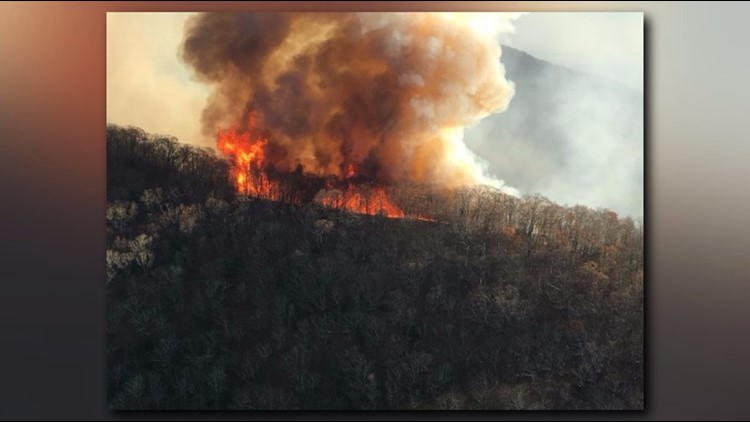ATLANTA -- More than 6,000 fire fighters from across the country are spending thanksgiving in north Georgia as crews battle 38 large fires in the Southeast
Those fires have already burned more than 125,000 acres.
Fighting these fires has already cost more than $10 million. But that's just the beginning of the expense. Now, an expert says residents might need to get used to paying for some long-term costs.
For weeks Georgia residents have had to take precautions due to fires that are sometimes a hundred miles away. Activities have been canceled and a lot of people have gone to the hospital because the smoke is making it difficult to breathe.
After a while, it all adds up.
PHOTOS: Rough Ridge fire
With an ongoing drought and new fires popping up daily it's fair to say this is something locals don't often see in Georgia.
"A big concern is that it used to be the west we were concerned about," Klaus Moeltner said. "Now it's the East and Southeast."
Moeltner is an applied economist at Virginia Tech. He's studied the impacts of wildfires out west and said there's a lot for us to learn in north Georgia.
"A spike or an increase in people reporting to hospitals and emergency rooms with respiratory and also cardiovascular problems," he said.
For instance, in several counties across the metro, they've seen anywhere from a 20 percent to a whopping 50 percent increase in trips to the emergency room. Many of these patients complain they can't breathe.
"It's the same thing as second hand cigarette smoke," Moeltner said.'
PHOTOS: Cohutta Wilderness wildfire, Nov. 4.
That's not to mention people who have called in sick or been less productive at work because they don't feel well.
There's also the worry about a loss in tourism. It's busy season for the North Georgia Mountains.
Add it all up and the impact is anything but small.
"Several million dollars per fire season, or per month, wouldn't be unreasonable," Moeltner said. "This is a management issue that will go across state boundaries. This is a broadly regional issue that will require a lot of coordination."
So what can be done to fight these fires and these costs?
"I think what we can do is work on forest management," Moeltner said. "Alert the population that this might be something to get used to and to adapt to."
At this point, what north Georgia really needs to help fight these fires and contain the costs is some rain.


